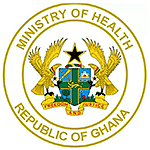Ghana’s Director of Public Health at the Ghana Health Service (GHS), Dr. Franklin Asiedu-Bekoe, has expressed cautious optimism that the country will soon see a decline in Mpox infections, even as confirmed cases continue to rise. Speaking in an interview with TV3 on Wednesday, September 10, 2025, Dr. Asiedu-Bekoe explained that the GHS is intensifying its response through heightened public awareness campaigns and improved case detection across the regions.
He emphasised that public education remains a critical tool in helping people recognise symptoms early and seek prompt medical attention. “The vaccines are not a lot, so, we will target the hotspots, especially the Western Region. This is to maximise impact by focusing on high-risk areas,” he stated, noting that the limited supply of vaccines expected in the coming weeks requires a strategic approach.
Dr. Asiedu-Bekoe elaborated that the targeted deployment is guided by the principle of cutting transmission at its source. “The idea is that when you are able to break the source of infection, then it helps break transmission, and the powerhouse is cut off to minimise the rate of infection across the country,” he explained. By concentrating resources in areas with the highest transmission rates, the GHS hopes to disrupt the chain of infection and slow the spread nationally.
However, he acknowledged that the national response faces significant challenges. Chief among them are the stigma associated with Mpox and the lack of widespread public awareness. Stigma, he said, often discourages individuals from seeking medical help early, which in turn fuels further transmission. To address this, the GHS is working closely with stakeholders, including the media, to encourage open discussions and counter misinformation about the disease.
As of September 10, 2025, Ghana had recorded 494 confirmed cases of Mpox. The GHS remains hopeful that with improved awareness, targeted vaccination, and strengthened community surveillance, the outbreak can be brought under control in the coming weeks.
The current strategy reflects a balancing act between limited vaccine availability and the urgent need to protect vulnerable populations. By focusing on hotspots such as the Western Region, health authorities aim to achieve the greatest possible impact with the resources at hand, while continuing to build public trust and encourage early reporting of symptoms.
If the combined measures of targeted immunisation, public education, and community-level surveillance succeed, Ghana could begin to see a reversal in the upward trend of Mpox cases, offering a model for managing outbreaks in resource-constrained settings.
Source: Limited Mpox vaccines to be deployed in hotspots – Dr Asiedu-Bekoe



